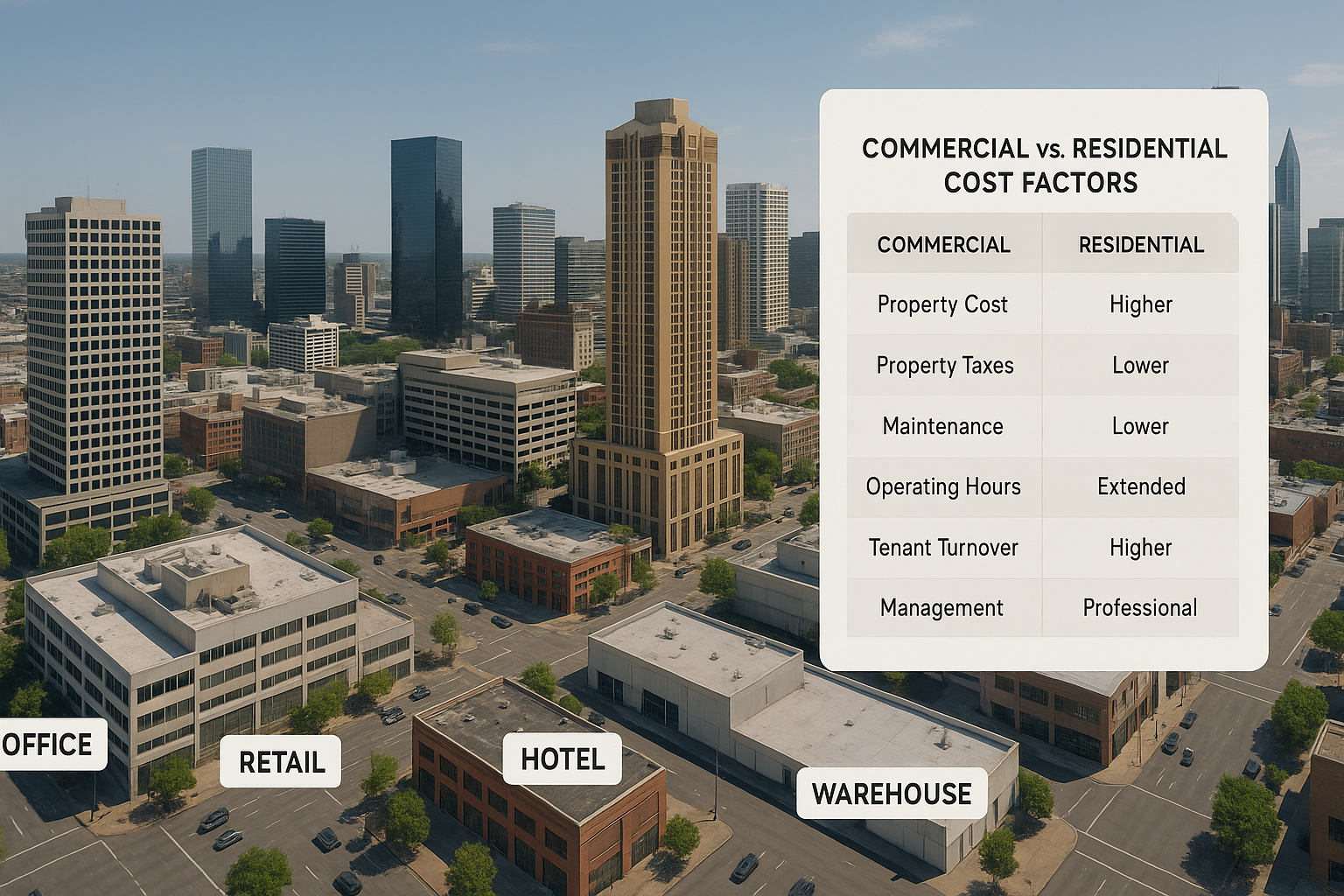Expert Reveals Why Commercial Property Costs Beat Residential
Unlock the potential of commercial real estate and discover why its financial advantages often surpass those of residential properties by browsing options that could transform your investment strategy.

Understanding the Cost Dynamics
When it comes to property investment, commercial real estate often presents a more lucrative opportunity compared to residential options. The primary reason lies in the cost dynamics and the potential for higher returns. Commercial properties, such as office buildings, retail spaces, and industrial facilities, typically offer a higher rental yield. According to data from the National Association of Realtors, commercial properties can yield between 6% to 12% annually, whereas residential properties generally provide a yield of 1% to 4%1.
Higher Income Potential
One of the most compelling reasons investors are drawn to commercial properties is the income potential. Commercial leases tend to be longer, often ranging from three to ten years, providing a stable and predictable income stream. This stability is a significant advantage over residential leases, which typically last one year. Moreover, commercial tenants, especially those in retail or office spaces, are more likely to invest in the upkeep of the property to maintain their business operations, which can reduce maintenance costs for the property owner.
Appreciation and Value Increase
Commercial properties also have a higher potential for appreciation. The value of these properties is primarily driven by the revenue they generate, unlike residential properties, which are often influenced by comparable sales in the area. This means that improvements or increased rental rates can significantly boost the value of a commercial property. For instance, a minor increase in rental income can lead to a substantial increase in property value, given the capitalization rate's impact on commercial real estate valuation2.
Tax Benefits and Incentives
Investing in commercial real estate also comes with several tax advantages. Property owners can benefit from deductions such as mortgage interest, depreciation, and operating expenses. Additionally, certain commercial properties may qualify for government incentives, such as tax credits for energy-efficient upgrades, which can further enhance the overall return on investment3.
Access to Specialized Financing Options
Commercial real estate investors often have access to specialized financing options that are not available to residential property investors. For example, commercial loans typically offer more flexibility in terms of loan structures and repayment schedules. Additionally, lenders may offer lower interest rates for commercial properties due to the perceived stability and lower default risk associated with these investments4. This can make commercial property investments more accessible and financially viable for savvy investors.
For those looking to maximize their investment returns, exploring the commercial real estate market could be a game-changer. With its higher income potential, appreciation benefits, and tax incentives, commercial property offers a compelling alternative to traditional residential investments. By visiting websites and following the options available, you can uncover opportunities that align with your financial goals and investment strategy.